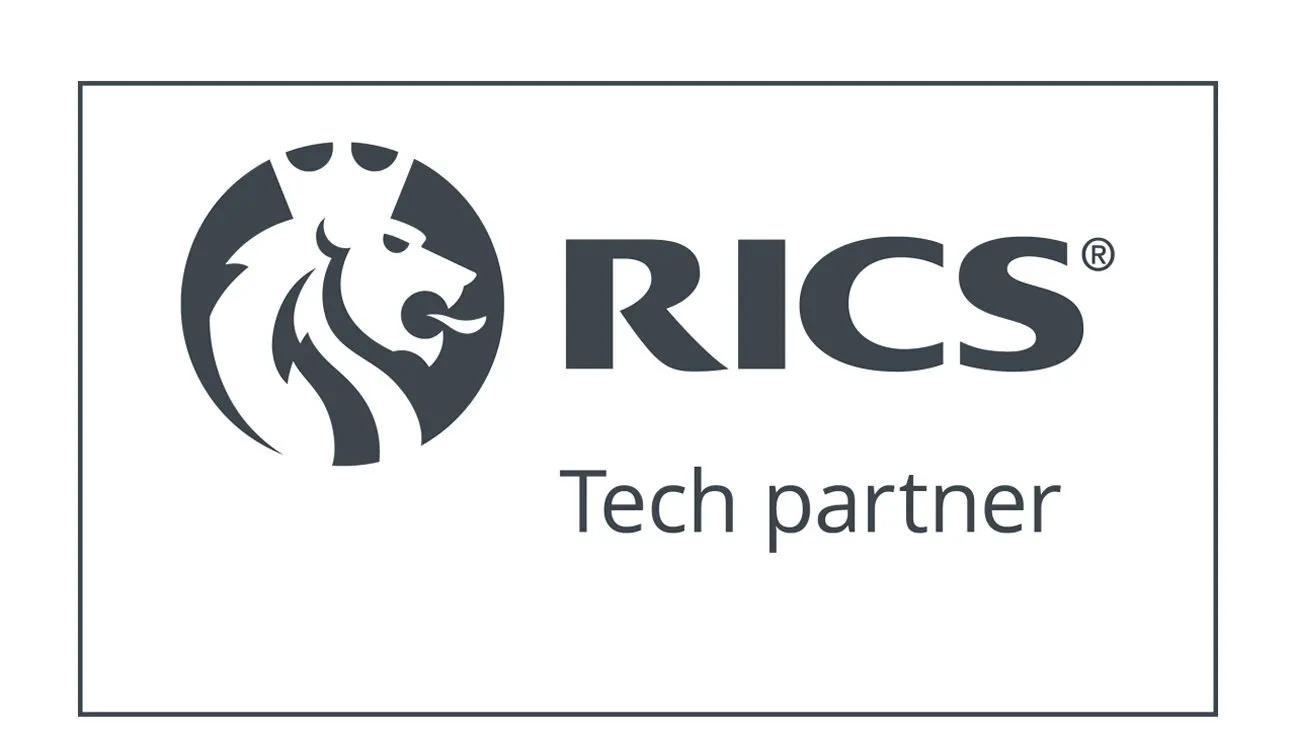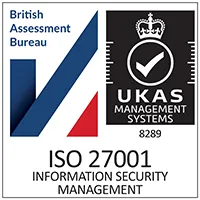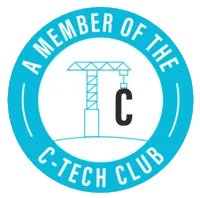00:00 Introduction and Speaker Background
Glenn: So, we got one more topic before lunch and going to introduce Ben Walker. Now, if you want someone who's dedicated to the NEC cause, NEC cause even he's just back from a week delivering training in the Falkland Islands. So, I reckon that's pretty impressive. So, this intro Ben talking about taming commercial chaos.
Ben Walker: Thank you, Glenn. Can we see all the doors and stop any smells of lunch coming in? I'll be as quick as possible. And there's no penguins in this talk whatsoever.
02:30 The Chaos Problem: Project Reality Check
So we all know what I'm about to talk about. You can picture the scene. 6 months into a project, we've got 100 compensation events. Only 10 are implemented. The other 90 are at some stage of their life cycle from notification. We've got quotations, maybe some outstanding, some are late. Maybe we've batted back a couple of quotations, revising, instructing them for revision because maybe we're waiting on an aged programme that's maybe 6, 7, 8 weeks old. We're being peppered by early warnings. We've got test inspections. We really should witness some defects that need correcting. And all of this on a backdrop of a frantic scrabble for a payment application where we're trying to head off disallowed costs.
So there's a lot going on and this talk really was about how we approach the taming of that chaos and making sure that we don't end up doing yesterday's work tomorrow and that dreadful feeling of being out of control and then having to come in on the weekends to keep things going.
05:15 Traditional vs Modern Contracts
Before we think about - I did put in the intro there that it was about modern contracts. So I just want to make that distinction between what I one person's view of traditional contracts versus modern contracts.
I know what this guy was thinking 20 odd years ago whilst they were stood on site. They were thinking I wonder how much delay and disruption on this job's going to cost us. And that's because we weren't doing much admin. We were building stuff and I had lots of other questions like what contract and sometimes I'd seen it, sometimes I hadn't. Those I did see weren't really written for me. I couldn't follow them in a particularly useful way and they just seemed to sort of waffle on about lots of long sentences, 400-word long sentences, and it just didn't seem like something that I needed to engage with.
And I was aware that projects sort of got finally administered in a period after we'd all gone home by people that weren't there to witness what had actually happened. This all seemed very transactional and was full of shocks and surprises not least of which was that protracted final account dispute.
08:45 The Modern Contract Revolution
But one sunny day I remember first engaging with NEC. Now, this by difference is I call a modern contract. Primarily was much more a manual for successful project management. So the emphasis there was about influencing the future rather than administering the current and the past. And this seemed much more attractive to me.
It was in plain English. Sentences have punctuation and bullet points and simple words. And it seemed to be far more procedural and prospective. So it felt like something that we would follow and embodied good practice rather than unpicking things after the event.
Now this did strike me though as needing a bit more time in the office and there was a reward to that which was greater certainty of outcome which genuinely even in the early days did seem to come to fruition. But that didn't really help me when I was spending Saturdays and Sundays keeping up with the admin.
11:30 The Philosophy: Project Management vs Administration
The great late Dr. Martin Barnes said something at a conference many years ago that etched itself into my mind and it was this: that project management is about influencing what hasn't happened yet. Everything else is just administration.
So do you want to actually - if you call yourself a project manager, do we want to be influencing the fate of the project or are we just going to record and possibly argue about it afterwards?
12:15 Is There More Admin in NEC?
Is there more admin within an NEC contract? Undoubtedly there is. Although I'd caveat by saying during the project there is more admin. I think we're taking perhaps 100 units of admin after the project and we're making it maybe 60 units of admin during the project but with all the benefits of having the people there who were actually building it.
So is it more than needed? No, I don't think so. I think it's the appropriate amount to achieve that proper level of project management. However, sometimes people like to make it complicated and add a bit more. And then we could be doing triple quadruple the amount of admin that we need to do and then we get chaos again.
14:00 The Birth of Contract Management Systems
As a young engineer under this actual viaduct I made two decisions in my life - early decisions. One was that on balance even though I was there on Sundays it was worth doing and it seemed to me accessible and I could see the vision and the goal of it. So I thought yeah let's follow this. So I did engage with it. I got training and I started to try and understand the procedures.
The second decision I made came about of circumstance because I didn't like being there on the weekends every weekend. And so it was under this actual viaduct that contract event management and reporting was born - later called Cemar.
When going about putting together a system like that, I don't know anything about software or coding or anything like that. To me, computers were irrelevant. It was much more about finding a process - a system to embody the process.
16:30 Three Core Elements for NEC Success
Sitting back in 2003 and thinking if this is going to work, what are the core elements that need to be addressed? And it struck me there were three things that to make NEC a success you really needed to invest in:
16:45 1. Culture
I don't think it's naive to seek it. When I first stepped into an NEC contract, my first experience, I thought it was a bit naive and a bit cuddly and a bit fluffy. I didn't really know what it meant. Surely I was there to mix up mortar and carry things around site. So, I'm not really sure where this sort of mutual trust and cooperation came in.
But it is something that is actually a prerequisite for many areas of the contract. If you think about as a contractor being instructed to a change to the scope, you follow that. It's clause 14.3 - we can receive it. We've got to follow it. 20.1 core obligation provide the works with the scope. 27.3 - obeying an instruction.
19:15 Cultural Shifts in Practice
So there's all these reasons why I've got to get on - that feels uncomfortable, but it feels uncomfortable to at the time a local authority accounting team who was saying, "Ben, what are you doing? Why are you writing all these instructions without getting a price in advance?"
I said, "That's fine. Do you prefer value for money or budget certainty because we can do a £20,000 compensation event or we can keep - and I can explore the cost now or we can get on with it and it'll be £1,000 roughly. Which did you prefer?"
So there's all these sorts of cultural shifts that we need to make to make it work.
20:00 Leadership and Culture
I think culture is definitely the shadow of our leaders and we heard that a lot yesterday in the NEC conference yesterday and again echoed this morning. A nice quote that I heard was the best we can expect from our teams is the worst behaviours the leader exhibits.
So I think we all have a role in making sure that we really check ourselves and make sure that our conduct is appropriate. And I've seen lots of articles written about achieving mutual trust and cooperation. I think my favourite and sort of 80/20 rule thing on this is just do what the contract says. You know, it's not supposed to be a good read or exciting or novel. Be boring, be predictable, do what you're supposed to do.
21:30 2. Knowledge
Get trained, know what you've got to do. You can't do what you're supposed to do if you don't know what it is. Involve experts, ask questions. Get rid of the ego and you know just ask questions and work out what we need to do.
One of the things that always sort of jars with me when I give NEC training is we talk about NEC being easy to follow - intuitive to follow user friendly structure. And it does jar a little bit because at least in some of the Latin contracts although you can't understand the clauses you know which ones they fit together with.
So we don't say in clause 60.1 brackets one have a look at 14.3 or 20.1 or 27.3 or 63.9 - you know we don't see that fit. And I think that's actually a bit of a challenge and it's possibly the reason we get some wacky Z clauses because perhaps people without the broader understanding of how the whole thing fits together we can get these Z clauses.
23:15 Using the Contract Language Correctly
So we need to use the index. As an examiner - Rob I know we've put the same thing examination reports over the years about just look at the index it gives you a clue. Choose your words and go and find those other clauses.
Not knowing your obligations and failure to discharge - major cause of dispute. Also get on my soap box with this one - using language. Don't bring in language from old contracts. There's enough language in NEC.
Some of it we need to get used to - the definition of plant equipment, you know, don't mix those up. Don't talk about snagging. Practical completion - what's this mean? And verbs. The verbs are important. I know what acceptance means or doesn't mean when we accept something. If we start approving or agreeing, what does that mean? We'd have to start paying people to tell us what that means.
So, acceptance, you have a car. So, stick to the language.
25:00 3. Discipline
Having a discipline to do all of these things. Creating a rhythm of business, getting your actions done, not rolling yesterday's work into tomorrow. And have indicators to check yourself and know where - when you're in it, it's very difficult to know where you are.
We found that earlier on when we were putting our stand up at Gala. You need someone to stand back and say, "No, that's around the wrong way." So, know where you're falling behind. Have some sensible key performance indicators. Make sure you are on your project as well as in it, particularly if you're leading it.
Make sure you have access to good records and systems. These are really the oxygen that make things tick. And take early intervention if you spot poor knowledge or poor behaviours.
26:30 How Software Can Help
How can software help us achieve this culture, knowledge, and discipline? Well, I think there's seven things it can do for us:
26:45 Seven Ways Software Supports NEC
- Configured and structured to contract rules and procedures - So I used to get frustrated before my time in the IT world or software world with people coming to the office and saying "yeah we can build you that Ben what would you like it to look like?" I'm thinking no I want someone to turn up with it 85% finished. So making sure that it already embodies the NEC procedures or the NEC requirements but is flexible enough to be tailored to your specific contracts.
- Provides consistent standard for records and communications - Single truths accessibility available controlled and audited.
- Builds a data set with actionable insights and learning - So until this fourth point, we're not necessarily talking about software. We could be talking about just a well-run administrative system. Everyone talks about digitalisation. This is more than just taking a photograph of your meeting minutes, which is what I used to do for a long time until Will told me that wasn't digitalisation.
- Creates structured data - So now we're building data sets with structured data. We're not talking about forms here. We're talking about structured data. You know, we create forms electronically because they look like the paper we're used to. Let's break that paradigm and actually use the full potential of digital.
- Achieves compliance through workflows and validation
- Includes a safe place to practice - To train, to fail, to test, to gain familiarity with what we're doing.
- Software never forgets to remind you - And bring that cadence and rigor if we use it.
29:30 The Problem of Politeness
Now, there's a little bonus benefit here, and I call it the problem of politeness. Could anybody give me which clause this is 15.2? What we mean is this, isn't it?
I was mobilising Cemar on a project - I think it was 2012, 2013 and I was talking to the contractor and it was about four or five weeks in and just by chance the project manager walked into the room and bang the desk and said "this is how it's going to be is it" and I shrank into my chair and his problem was that the contractor must have an army of lawyers writing letters and the contractor in a very jovial voice "oh No, no, no. It's not that. It's this - it's Ben's fault. We've turned this system on that's contract management system."
And the disarming effect that had was incredible and it made me think, yeah, this does have a role. Software has a role in what we're doing because the disarming effect of "Oh, so you're not writing. No, no. So, it's just a standard set of stationary that we're communicating. Oh, well, that's fine."
And it meant that you could be unapologetically clear and precise and unambiguous and standard and consistent. And it was a real boon for I think achieving that clarity.
31:45 Cautions About Software Use
Use it to aid an understanding and to formalise communications and records. If you use it as a barrier between you and you just throw sort of things over the electronic fence just on a Friday afternoon or Christmas Eve or whatever it might be, that's not going to do anything to improve trust and cooperation. It will just erode it.
So we need to be careful of that. And, I did, you know, horses for courses, right? If we've got a complex technical thing to be discussing, let's do that on a whiteboard with a coffee if we're co-located.
32:30 Record Management: The Foundation
Let's talk about record management. I think Mr. Gerard, you said this. I don't know if you said it first, but I'm going to attribute it to you. So, we shouldn't be spending time arguing the facts. Sounds very sensible, doesn't it? But we do, don't we? We do. Every day we spend time arguing facts and it's a real shame.
And I think Max Abrahamson said this far better with "records, records, records," but what are they? Well, they give us the oxygen to actually administer these modern processes. They weren't so relevant in some ways with traditional contracts where there was just a great fog. But now we've got all these open book records transparency and you know we need the records to be there otherwise we're extrapolating or interpolating and this just causes breeding ground for dispute and argument.
34:00 Two Types of Records
So what do we mean by record? Well I think there's two types. I think predominantly it's helpful maybe to have this distinction between the two:
34:15 QHSSE Records
So I think it's helpful to think about our QHSSE records which are all about proving that what we've built is in accordance with the scope and making sure that we are safe in doing so.
34:30 Commercial Records
And then the second kind is much more of a story. It's a narrative as to how we built the works, who was there, what equipment did we use, when were the materials bought in, and what held us up, what tripped us up. And I'm not just talking about listing compensation events here. I'm talking about the whole picture. Far more credible to track 100% of your delay and then make an argument for however much of it is compensable.
So that commercial narrative I think is distinct. It's much more about the how - it's the story.
35:30 The Gap in Commercial Records
But I think there's a gap. We're really good at QHSSE and we're absolutely diabolical at commercial. Why is that? Why is it?
Well, I think firstly QHSSE is law. We've got to do it. And if people don't do it, things fall over or collapse, people get hurt and injured and killed. So, it's really important that we do that.
But is not doing commercial records, does that mean no one gets hurt? What about the 49% of lost working time due to depression, anxiety, and stress? What about the 3,100 businesses that went bust to August last year in our sector?
So, there's a huge impact on not doing the commercial recordkeeping well. And it's just so basic. It's not robot dogs or drones with lidar. I mean, I would like a robot dog, but you know, I think there's so much great innovation in our industry, and I'm 100% with it, but probably 80% of the benefit is still in the simple stuff.
37:00 The Digital Misconception
I don't just think it's about that. I actually think we think we've done it. I think we believe we have the digital approach already there. And I don't think we do.
So if we're using QHSSE management record tools for capturing those types of records, which we do very well, we're trying to use the same software or approaches to commercial and many of us don't. We still use carbon triplicate bits and pieces lost in the van. Fragmented, inconsistently captured. This is causing us a real problem when we get to commercial procedures and it causes chaos.
38:30 The Difference in Data Consumption
Unpacking it a little bit as I have done with Will and Ellie and the team at Gather, we've been thinking about what is it? What in essence are we doing not quite getting right and it struck us that when you think about a concrete test result or a risk assessment the format of capturing is the same format in which we digest them when we look at them later when we want to retrieve a record in a QHSSE world we bring it back and we consume it and look at it and we put it back in the file.
That is not true for commercial use cases:
- We might need 15% of 100 records in aggregate in order to justify the accounts and records of defined cost for a particular compensation event
- We might want to aggregate things for an application for payment
- We might want to trend some reasons for access issues so that we can do a lessons learned piece later on
- We might be looking at the next accepted programme submitted for acceptance thinking is it practical? Is it realistic? What empirical productivity of the sites have I gleaned in order to project them forward?
- We might be estimating the next project
We would have our own version of Spons if we captured commercially our records appropriately in accordance with the standard method of measurement.
40:30 Modern Contracts and Time Pressures
So, lots of good reasons for doing this. And of course, modern contracts are giving us tight time scales to do this in a contemporaneous matter whilst we're trying to do all those other things as well. It's no wonder we can get ourselves into chaos if we're not disciplined with the right knowledge and the right culture.
41:00 Traditional Uses of Records
So just briefly to take us to break I just want to touch on a few areas where records have a value and traditionally in retrospective application we use them for:
- Substantiating payment
- Justifying defined cost
- Arguing disallowed cost one way or the other
- Reporting progress
- Retrospective assessment
These are kind of very point events and we go and we get them to we aggregate them to prove something.
42:00 Prospective Value of Records
But NEC is very prospective isn't it and interesting conversations on LinkedIn about well so how relevant are records then to the prospective elements and I think we kind of covered it in that little bit I just mentioned there - in aggregate they provide us productivity insights.
There's a need for I believe we believe saying at the start of each shift we're going to do 100m of something and metres is the chosen method of measurement because when we do 60m and we give reasons for not doing the other 40 that we thought we were going to do. We're capturing that in a standard way. A way that speaks to the commercial operation. A way that can be have reasons tagged to it and aggregated. It can be linked back to the schedule of cost components. There's so many things that can be linked to the programme.
So many ways then we suddenly have that granular day-to-day activity that we're doing anyway in support of things like the programme. So then the programme becomes a bottom-up exercise.
43:30 Programmes and Real-Time Management
I won't ask you to show hands as to how many of you parachute a planner in once a month to create a P6 programme. So really growing the programmes from the bottom up getting ourselves to a point where we can submit and accept on the same day. I think at that point programme will really work for us and that's true for compensation events as well. Perhaps workshopping these things out so that we're submitting and accepting on the same day.
I mentioned KPIs for chaos. One of my KPIs for chaos is how many times do we instruct a revised quotation? How many times do we withhold acceptance to a programme? Why are these things surprising us?
44:30 Future-Focused Benefits
Allocation to task and reasons for variance. So now we have the oxygen to do prospective compensation events. We have the ability. We have contemporaneous programmes with real logic in them. We have the ability to forecast to the next assessment date with confidence and a reduced amount of disallowed cost.
45:00 The Paradigm Shift
I mentioned programmes as well. So there's a bit of a paradigm shift I think when we detach ourselves from paper and we start thinking in terms of the relationship between different sets of structured data and how they bring how we bring them together whether it's resources out on site their allocation to certain activities the method of measurement by which we track progress and the rules of the game however Z clause they might be can be embodied into that.
We spend so much money honing within an inch of its life NEC and procurement and Z clauses and then we don't match that investment with tooling and training - not always many times we do but it's not as perhaps front of mind so I appreciate you know it's almost like vitamins rather than medicine some of this.
46:30 Six Things We Could Do Today
46:45 1. Embrace Commercial Record Management
We could embrace commercial record management as important as QHSSE.
46:50 2. Improve Project Health
We could improve the health of our projects and the people delivering them.
47:00 3. Match Investment in Strategy with Operations
We can match the investment in contract strategy with operational solutions for making it successful.
47:10 4. Elevate Field Activities
We need to elevate the importance and visibility of field activities and the people operating them.
47:20 5. Look to Scope Enhancement
We could look to scope. I think volume two of the user guide chapter 3 with the codified structure for scope there's possibly areas of that where we might want to supplement it. I'm going to do something on LinkedIn soon on that.
47:40 6. Develop Competency Framework
I think we could look perhaps at a competency framework. There's probably lots of project manager accredited individuals in the room. How about something for shift supervisors capturing records on site? They're doing it with energy and vigour because they know why they're doing it. They're not being phoned up by an angry QS two weeks later. "Where's my record for this?" They're being contacted routinely every morning. "Great job yesterday. Was it an access issue then? Yeah. Can I have some extra photos?" We're building records as we go.
And I think those same individuals need incentivisation and recognition.
48:30 Technology Balance
And I'm again I'm not resistant to the fantastic new advances - I was looking at some the other day - camera-mounted inspections that are intelligently seeing the progress of work. I mean this stuff is fantastic but it's not going to determine at the moment at least between something that's compensable or not or some or that richer narrative and context as to why we haven't off-hired that excavator.
49:00 Summary: Key Benefits
So in summary the key benefits supports a healthy culture, improved commercial assurance and compliance giving us the knowledge we need and a framework for learning and sharing that knowledge. We end up with fewer disputes, healthier people and an increased productivity from actionable insights. So really shifting that paradigm around why we keep records.
49:30 Questions and Discussion
Glenn: I think with all of those three presentations, there's so many little elements in all of those. I'm so glad we're videoing these presentations because in a couple of weeks time, we'll all be able to go back. As sad as that might sound right now, but I certainly will. And I think yeah there's some real great nuggets in all of those three presentations.
We have got a whole two and a half minutes. So any questions or anything anyone observations anyone wants to share at all from anyone? Mr. Gerard, you've been the quietest you've ever been in about 15 years. And you were quoted there. Anything you'd like observations on anything you'd like to share?
50:30 AI and Digital Integration Discussion
John: Linking the two talks together it struck me that in terms of what the AI and linking progress defects etc to payment and Ben's talk there's a link there I'm not sure if it's AI is coding completion as in digitally and then linking that to payment and records and there seem to be a big link there and taking out the subjectivity of "oh is it complete or not?" Because if you can code it where providing it's done correctly that's not a discussion - that's it's finished. Yeah. It's done you get paid as an activity. So there seem to be a link there.
Ben: Yeah. I think digital does two things for us. It improves how we currently do things. It makes it more efficient, transparent, auditable, but it also opens up an opportunity for a paradigm shift. And to do that we mustn't be lazy and simply replicate what we've done on paper. We must rethink what the outcome is we're trying to achieve. And in amongst that is the potential for AI and smart contracts. But we maybe do the first one first.
52:00 System Compliance Challenges
I think the cloud-based systems have got a real responsibility here. We're always on the case - so great cloud-based systems out there. They've got to be contractually compliant. So one of the trouble that these systems have, we got contract B, we got think project, we got RPC here today, chat to them.
One of the problems they've got is when I talk to them and say "okay in the system if they don't respond within that time scale and you remind them, you notify if they don't respond with a further time scale, it's deemed accepted. So just make it deemed accepted in the system." "No, we can't do that." "Why not?" "Because the clients won't like it." But it's true. And it's true. Contractually it's true.
And even though it's not deemed accepted, for example, in the system, then some super user at some point has got to go in and press a button to say, well, it is deemed accepted. We can't get around it. So sometimes, you know, clients are sort of kicking back on these great systems who are trying to do the right thing. And the clients are saying, "no, we're not having that and if you refuse to do that, we'll go somewhere else." So we got responsibility to make sure that yeah, these systems that are putting great systems in place are actually allowed to do their job.
53:30 "Too Contractual" - Final Thoughts
Audience Member: One of the things that resonated with me actually when we talk about systems because and you mentioned this in your talk Ben is that from time to time we do hear those words "oh a system is that too contractual" and as we start moving into that whole AI space and becoming even more digital are we going to get that same comment being used as a way to you know where people are reserved from moving into systems so I think the words that resonated with me was that "no it's not too contractual - unapologetically clear." That that's what I really liked when you mentioned that. I think that's what we need to keep our keep our focus on.
Ben: Too contractual. It's a great phrase, isn't it? If you take contractual as being following the contract, how can someone be too much following the contract?
Glenn: And on that note, lunch.






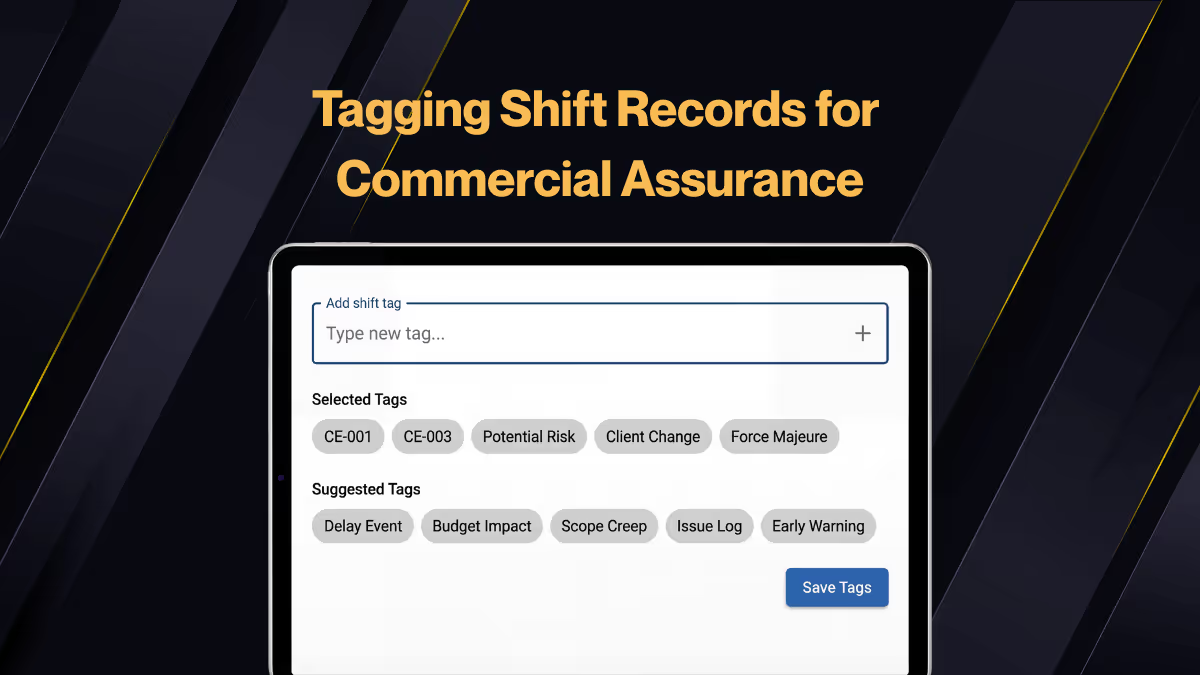
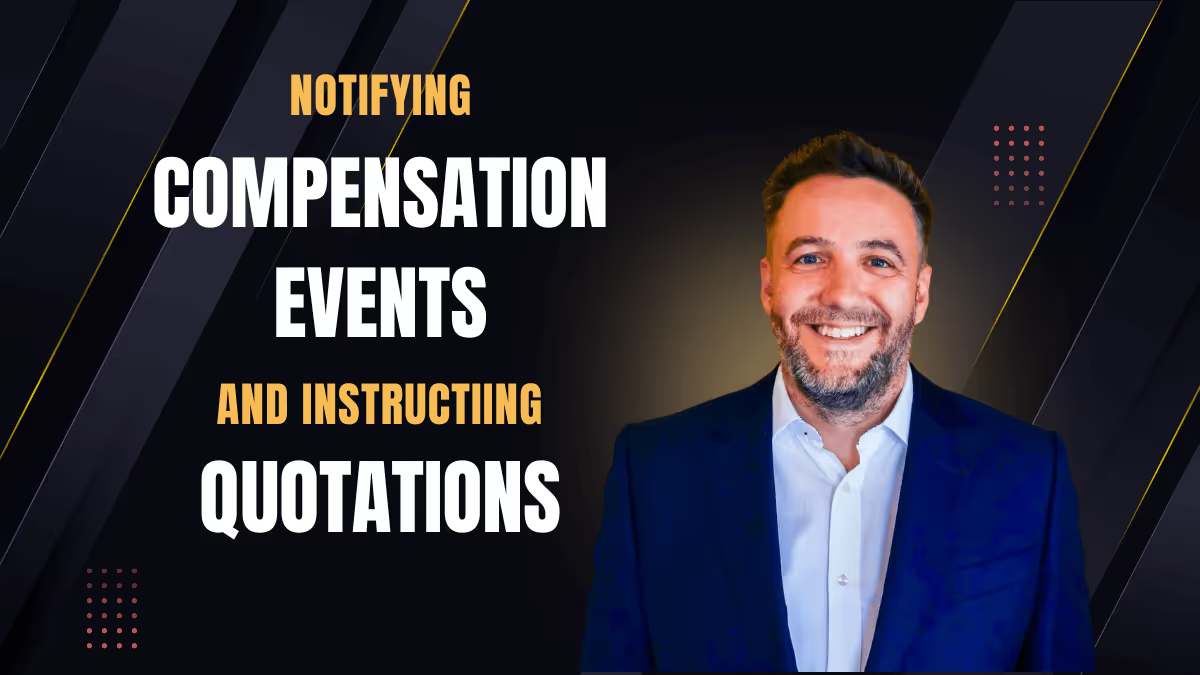

.webp)


